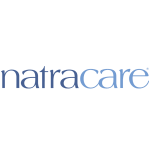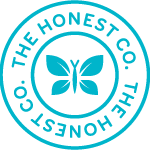17 Tips for a Non-Toxic 2017
 |
| Robyn Hegland Director of Development |
Before I started working with Women’s Voices for the Earth, I was aware of toxic chemicals in products, but I had much to learn and many changes to make to my lifestyle. In time for New Year’s resolutions, I wanted to share some easy ways that I’ve lowered my toxic exposure and lived a greener lifestyle over the course of my first year at WVE.
Resolutions can be hard to keep—but they don’t have to be! Once I made these small adjustments, living a less toxic life became less work, and less research. And I love knowing that they will add up to a healthier future for me, my loved ones, and, collectively, for our environment.
(I’m also taking this opportunity to plug our No Secrets Business Partners, as I believe it’s important to vote with your dollar and buy from sustainable companies that care about our health and support the causes we believe in.)
- Cut down on packaging, especially plastic. For example, buy from the bulk section at your grocery store, and use a bar of soap instead of a bottle of body wash. (This way I didn’t need my yellow plastic loofah anymore, either!)
- When choosing cosmetics and personal care products, check the Skin Deep Database. I know, I don’t want to do research every time I buy soap or makeup either. Choose a company or two that you trust and stick with it. Check out our partners for some safe bets.
- Be careful about lubes and adult toys, which can contain some very not-sexy chemicals. Look for toys made of 100% silicone, and simple water-based lubricants.
- Switch to stainless steel or cast iron cookware instead of non-stick (or keep the heat at or below medium if you use non-stick), and steel or wood cooking utensils instead of plastic.
- Make your own personal care products. I’m loving the honey-lemon-lavender sugar face/body scrub I made last week (1/2 cup sugar, 2 tbsp lavender olive oil, 1 tbsp lemon, 1 tbsp honey).
- Make your own non-toxic cleaning products from safe and effective ingredients (like vinegar, baking soda and Dr. Bronner’s). Or, be sure to buy from companies who offer safer products and transparent ingredient lists.
- Buy less—think about all of the products you use, and which ones you could eliminate from your routine. Do you need all of those different cleaners, or would vinegar or a wet cloth get the job done? Could coconut oil replace any of your personal care products? (Seriously, coconut oil is amazing.)
- Go fragrance free—I no longer use perfume, and I stay away from room sprays, scented candles, and the like. Here are some tips for reducing common odors around your home without fragrance. Feeling really motivated? Take the fragrance free pledge!
- Always carry a (glass or steel) water bottle/thermos, and keep reusable bags in your backpack and/or car at all times. I admit, I still get to the checkout line and realize I’ve left my bags in my car, but then I get the added exercise of running out to retrieve them (fitness resolution-check!).
- Go BPA free—stay away from plastics, and opt for fresh or frozen food instead of cans. Store food in glass containers and jars instead of plastics, and never microwave plastic.
- I am a big advocate for organic and reusable feminine care products. I rave about my menstrual cup to anyone who will listen (it has gotten awkward). Not quite ready for the cup? Go organic with your tampons and pads, or try cloth pads or period underwear.
- Use wool dryer balls instead of dryer sheets. It’s more of an upfront cost, but they last. Bonus—my dogs get really excited when they fall out of the dryer.
- Forgo feminine cleansing entirely (water is all you need), and give your lady parts air flow by avoiding synthetic fabrics and opting for organic cotton underwear. If you do choose to wash and/or wipe, look for gentle, natural options (wipes can also be convenient to bring camping).
- Speaking of organic cotton—I re-thought my bedding. The average adult spends 33% of their life sleeping, so I want my bedroom to be free of toxic chemicals like dyes and pesticides. (If you have little ones, it’s especially important to watch out for flame retardants.)
- Switch to a non-toxic shampoo, and/or try not to wash your hair every day. This one was hard for me—I felt like a greaseball for a while. But once your hair gets used to it, it’s much softer and stronger. And you can use all the time and money you save to…
- Take action for safer, healthier products. Become an actionista, and/or sign up to give monthly to WVE.
- For safe, non-toxic feminine care, cleaning products, home supplies, and personal care products, shop from our business partners in 2017:
 |
 |
 |
 |






Additions can be made to your list. Buy an organic bed. Regular beds are full of toxins. Source your furniture from before 1970 to make sure it does not have flame retardant chemicals in the foam or upholstery fabric. Flame retardant chemicals become dust in your house and affect your health. Many of these chemicals have been linked to serious health risks, including infertility, birth defects, neurodevelopmental delays, reduced IQ, behavioral problems in children, hormone disruptions, and cancer.
Remove carpeting and replace with wood flooring. Most new carpets contain volatile organic compounds (VOC’s) including benzene, toluene, formaldehyde, styrene, ethyl benzene and acetone. Many of these are on the EPA’s list of Extremely Hazardous Substances.
New carpets are also likely to harbor known carcinogens such as p-Dichlorobenzene are and other chemicals which have been known to cause nerve damage, hallucinations and respiratory illness. Most new carpets are treated with artificial dyes, stain and soil repellents, adhesives, mothproofing and flame retardants, all of which use toxic synthetic chemicals. Older carpets offer even more health hazards than new ones. They may contain the chemicals banned from more recent production. Also, they can harbor years of accumulated dirt, dust mites, and previously used chemical cleaning products, pesticides, paint fumes and solvents. A carpet can hold eight times its weight in dust and dirt.
Get the fluoride out of your water. Fluoride is a potent neurotoxin. Eat organic food. Pesticides and GMO have no place in a healthy person’s diet. Don’t wear Goretex, or stain or wrinkle-resistant fabric, or treatments, as these all contain teflon. Gore-tex is made from the highly toxic, extremely persistent group of chemicals called perfluorochemicals (PFCs). Also used in Teflon, Stainmaster and Scotchgard, PFCs now thoroughly contaminate our air, water and bloodstreams. BPAs in cash register receipts–don’t handle them.
Not enough said about the dangerous chemicals in laundry products.
I buy cruelty free products. I would like to see that category on your website to promote the end of animal testing.
Good list. How about forgoing the clothes dryer altogether (or for just 5 minutes for the wrinkly items). It saves energy and sends you outdoors to hear birds while you hang up your clothes (or use an indoor rack).
I mostly use Glad Rags during my menstrual cycle, but on one day, I have very heavy bleeding that is best served by a tampon. I have tried NatraCare organic tampons over and over and have finally given up on them. They have about a 50-67% rate of failure to release. I can’t get the tampon out of the applicator in at least half the times I attempt to insert. I have written to the company and they didn’t even bother to respond. I’m tired of the waste of money but even worse is the number of times I’ve been left in a lurch, begging off other people because NatraCare has let me down. Any recommendations for 100% functional organic tampons?
WHAT KIND OF DUVET CAN I BUY WHICH IS ALL NATURAL AND NOT TOO WARM?